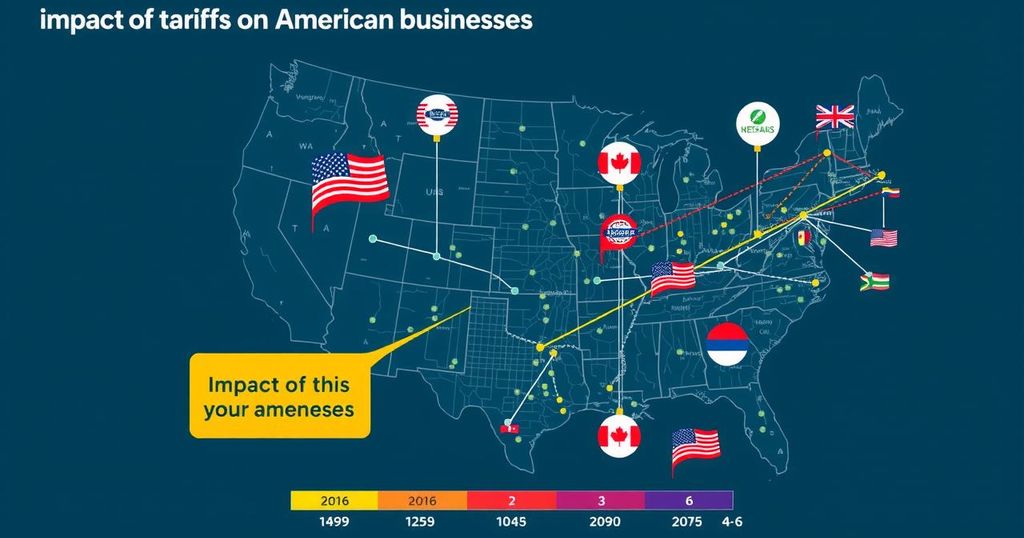American businesses are gearing up for the impact of Trump’s tariffs by shifting supply chains and implementing cost management strategies. Companies like Stanley Black & Decker and Lowe’s are notable examples of adapting to potential increases in tariffs that could disrupt operations and elevate prices.
In the wake of Donald Trump’s presidential victory, American businesses braced themselves for potential effects of new tariffs. Many companies, such as Stanley Black & Decker, indicated a proactive approach by relocating their supply chains away from China to mitigate tariff impacts. Similarly, retailers like Lowe’s implemented strategic processes in response to Trump’s earlier tariff measures, which affected approximately $380 billion in imports, including crucial materials like steel and aluminum along with various consumer goods. The response of these enterprises illustrates their efforts to navigate through an evolving trade landscape characterized by heightened tariffs and geopolitical tensions.
The discourse surrounding Donald Trump’s tariffs focuses on their anticipated ramifications for American industries. During his first term, tariffs were imposed on substantial imports, notably from China, which required businesses to devise methods to cope with rising costs and supply chain disruptions. As Trump commenced his second term, concerns escalated regarding the long-term sustainability of such economic policies and their ability to effectively fortify domestic industries against global competition.
In conclusion, American businesses are preparing for the potential challenges posed by Trump’s tariffs through increased vigilance and strategic adjustments. The implementation of adaptive measures highlights their commitment to preserving profitability while navigating an unpredictable economic environment. Ultimately, the effectiveness of these strategies will depend on the evolving political and economic landscape, impacting global trade dynamics significantly.
Original Source: www.economist.com

Leave a Reply